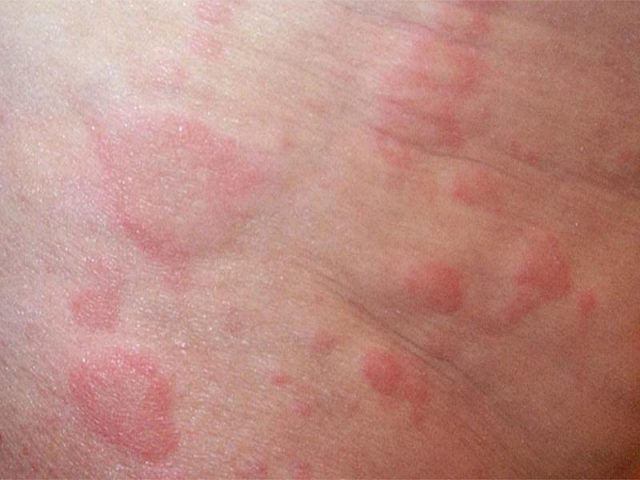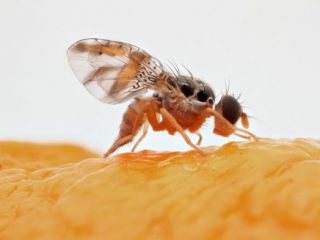Content
Melon allergy occurs today in adults and children. Despite the beneficial properties, rich chemical composition and taste, this product can become a strong allergen, causing many unpleasant symptoms. Even grown in an ecologically clean environment, melon can harm human health, and if medical attention is not provided on time, it can even lead to hospitalization and death.
Could you be allergic to melon?
If you are allergic to melon, you can get unpleasant symptoms that will cause you to quit, despite the taste, low calorie content, and properties of the fruit. High content of sodium, potassium, iron, vitamins C and B6 are important for those suffering from heart disease, anemia, rheumatism. The folic acid found in melon is beneficial for pregnant and lactating women.
The presence of allergies turns the advantages of the product into disadvantages: a person cannot consume juice, melon pulp, additives based on it.
It is noticed that there is an allergy to melon in the case of an existing reaction to ragweed flowering, which coincides in time with the pollination of the plant.
The reaction is caused by chocolate, citrus fruits, milk. Melon is not included in the list, but it can provoke such an action. The reason for this is the serotonins that make up it.
There are cases of cross-allergy, where a reaction to some food causes a similar effect from others.
Why melon causes allergies
Melon allergy is caused by the protein profilin contained in its composition, as well as in citruses, birch sap, pollen, latex.
The factors provoking the reaction include:
- eating a product in large quantities;
- the development of cross-allergy;
- contamination of the place where the fruit grows;
- crossing of different varieties;
- poisoning with pesticides.
With an excessive passion for melons, allergy symptoms are temporary, passing in nature. When you stop using the product and carry out symptomatic treatment, the symptoms disappear.
Cross-allergy comes down to a reaction to similar vegetables: watermelons, pumpkins, as well as cucumbers, ragweed.
Melon will cause allergies after consumption if the product is grown in an environmentally unclean area.
When crossing varieties, breeders get a new one with improved qualities. The human body adapts to it with difficulty: rejection reactions may occur.
Allergies are often mistaken for symptoms of poisoning from chemicals that have accumulated in the melon as a result of their use during cultivation. You should pay attention to the color of the pulp, peel, leaves. If there are stains of unnatural shades, it is worth refusing to use the fruit.
Symptoms of an allergic reaction
An allergic reaction to melon manifests itself through the organs:
- breathing;
- skin;
- gastrointestinal tract.
They recognize her by the characteristic symptoms:
- dizziness;
- headache starting very abruptly;
- tingling in the mouth and lips;
- gastrointestinal disorders;
- redness of the skin, accompanied by severe itching;
- skin rash;
- nausea, vomiting;
- nasal congestion, profuse discharge;
- tearing and redness of the eyes;
- loss of consciousness, suffocation.
If all the symptoms correspond to an allergy, they turn to a specialist: the final diagnosis is made by an allergist.
How is melon allergy manifested in children?
Melon allergy is common in children. The child's immune system reacts to substances included in the melon as unknown, alien, dangerous. The body tries to cope with them by strenuously producing histamine. As a result, an allergic reaction appears, manifested by symptoms:
- the skin turns red, blisters appear on the body;
- urticaria is accompanied by severe itching, which brings suffering to the child;
- there is nausea, vomiting;
- there are frequent malfunctions of the digestive system (gas formation, diarrhea);
- melon sore throat, coughing begins;
- rhinitis, sneezing appears;
- the child complains of dizziness, tingling in the mouth.
Of particular danger to the child's body is a severe form - Quincke's edema, or anaphylactic shock. This form is rare, but it is dangerous with a lethal outcome.
If a child complains that after a melon there is a sore throat, swelling appears on the face, there are other specific symptoms, it is necessary to urgently call an ambulance. Quincke's edema develops rapidly: suffocation, a drop in blood pressure, loss of consciousness may occur. Delay is unacceptable.
What measures need to be taken
Acute allergies require an emergency call. At the pre-medical stage, others help according to the standard scheme, depending on the nature of the symptoms:
- acute laryngeal edema - you should provide an influx of fresh air, raise your head, give an antihistamine, apply mustard plasters on the chest, calf muscles;
- limited edema - monitor breathing, apply the necessary drug, apply a compress to the swollen places;
- bronchial asthma attack - remove the allergen, ventilate the room, put an enema, give activated charcoal, bronchodilators, antihistamines;
- hives - rinse the stomach with two liters of water, offer the drug, in case of respiratory failure, carry out artificial ventilation of the lungs;
- anaphylactic shock - check the patency of the airways, carry out resuscitation measures.
When do you need to see a doctor?
Allergies are definitely a reason to see a doctor. The therapist will conduct an examination, question the patient and draw up an anamnesis. An unclear picture of the disease becomes the reason for visiting an allergist, who will prescribe several studies:
- antibody test - showing the presence of an allergen in the body;
- skin tests - to assess the reaction to the melon.
The procedures are contraindicated for children, pregnant women, patients taking medications. In such cases, a false positive reaction is possible.
The doctor will advise keeping a food diary, tracking reactions to different foods.
An elimination diet, consisting in the elimination of individual foods one by one, allows the identification of the allergen.
Can you eat a melon for allergies?
There are no hypoallergenic products: each individual can become dangerous. People are prone to a variety of allergies. The situation is aggravated during the exacerbation of the underlying disease. Experts give strict recommendations regarding the principles of nutrition for food allergies to melon:
- avoiding foods that cause a reaction;
- elimination of the possibility of cross-allergy;
- careful study of the composition of products, with the possible content of melons;
- refusal from unknown dishes;
- use of home cooking, without the use of semi-finished products;
- exclusion of long-term storage of the product before use or preparation;
- limiting the intake of salt, simple carbohydrates;
- reduction of the allergenic properties of the melon due to its heat treatment.
Conclusion
Melon allergy is not a harmless disease. A person should know the foods that cause the reaction, avoid their use, use dishes with a minimum set of ingredients in the diet. You should find out the causes of allergies, consult a doctor about eating behavior, measures to prevent the consequences of pathology. At the same time, it is necessary to track the composition of dishes, cosmetics, products with melons in the composition.












